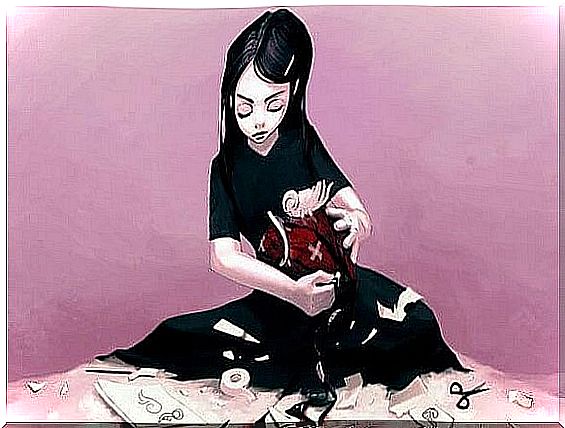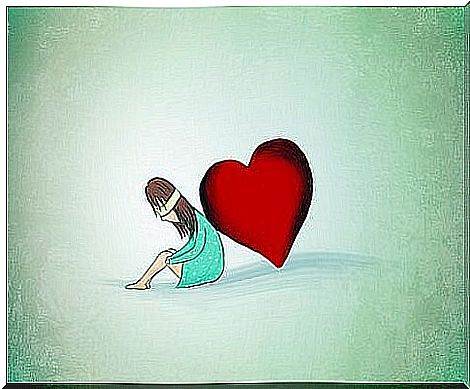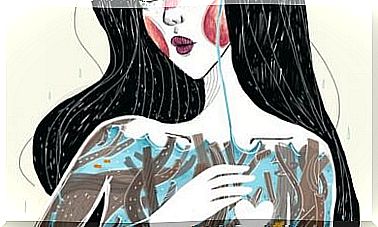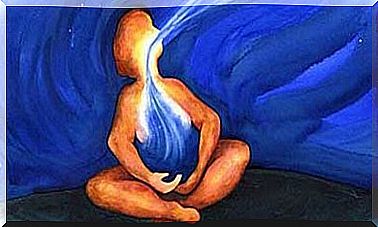What Happens In The Brain After A Fracture?

A bad break can leave you empty, broken and confused. We feel as if heartache is tearing us apart, and the truth is that it does something similar. Scientific studies have shown that partners involved in long-term relationships develop coherent memories, and each memory becomes part of a system on which both people depend.
When a relationship ends, this disconnection feels like something traumatic. It’s almost like amputating a limb; the body responds by longing for the thing it learned to trust. This may be similar to the withdrawal symptoms experienced by drug addicts.
Falling in love with someone is an emotional process that has many effects on the brain. For this reason, breaking up with a partner also affects the brain in many ways. After a fracture , the same areas associated with physical pain are activated even when you experience emotional pain.
Heartbreak and the brain
Various studies show that the same areas of the brain that are activated when a person falls in love – those that generate attachment and the desire to be with that person – are also activated during a breakup. This means that in addition to the pain, the person may continue to feel connected to their partner.
John Cacioppo, director of the Center for Cognitive and Social Neuroscience at the University of Chicago in the United States, claims that we were designed to establish stable emotional bonds, and it is very painful when those bonds are broken because the person you trust and believed in has failed you.
The results of other studies of people who feel broken after a fracture show that when the body responds to the pain, it releases the same hormones that are released when you feel stressed. These hormones also affect the digestive system and the heart.
If you have been through a similar situation, you know that it hurts a lot, but that life goes on. Your friends, your family, your passions and your inner resources will help you get through the situation. The process of a breakup is like falling in love again, but in reverse. The neural responses to romantic passion are similar in both cases.

The brain when it overcomes a fracture
Various studies have shown that as a romantic relationship develops, you idealize the person you love less and less. After a breakup, however, you are drowned in all these feelings again. Through heartache, the reward systems in the brain still expect them to receive that spark of love. When they do not receive an adequate response, they respond by increasing the activity level.
This demand from the brain’s reward systems is what ultimately leads you to act impulsively or foolishly after a breakup. When you write goodbye messages or desperate prayers to your ex, you are actually reacting to a chemical root in your brain.
When love ends, it hurts. It involves real, physical suffering that can last for several months, but this pain is part of the process of healing and growth after fracture. Brain scans of various people who experience heartache, found that there is special activity in parts of the prefrontal cortex, which is the area of the brain associated with the expression of personality, decisions and planning of cognitive complicated behavior.

In other words, while you are mourning and crying, the chemicals in your brain are already working to redirect your behavior, balance your emotions and get you back on track.









